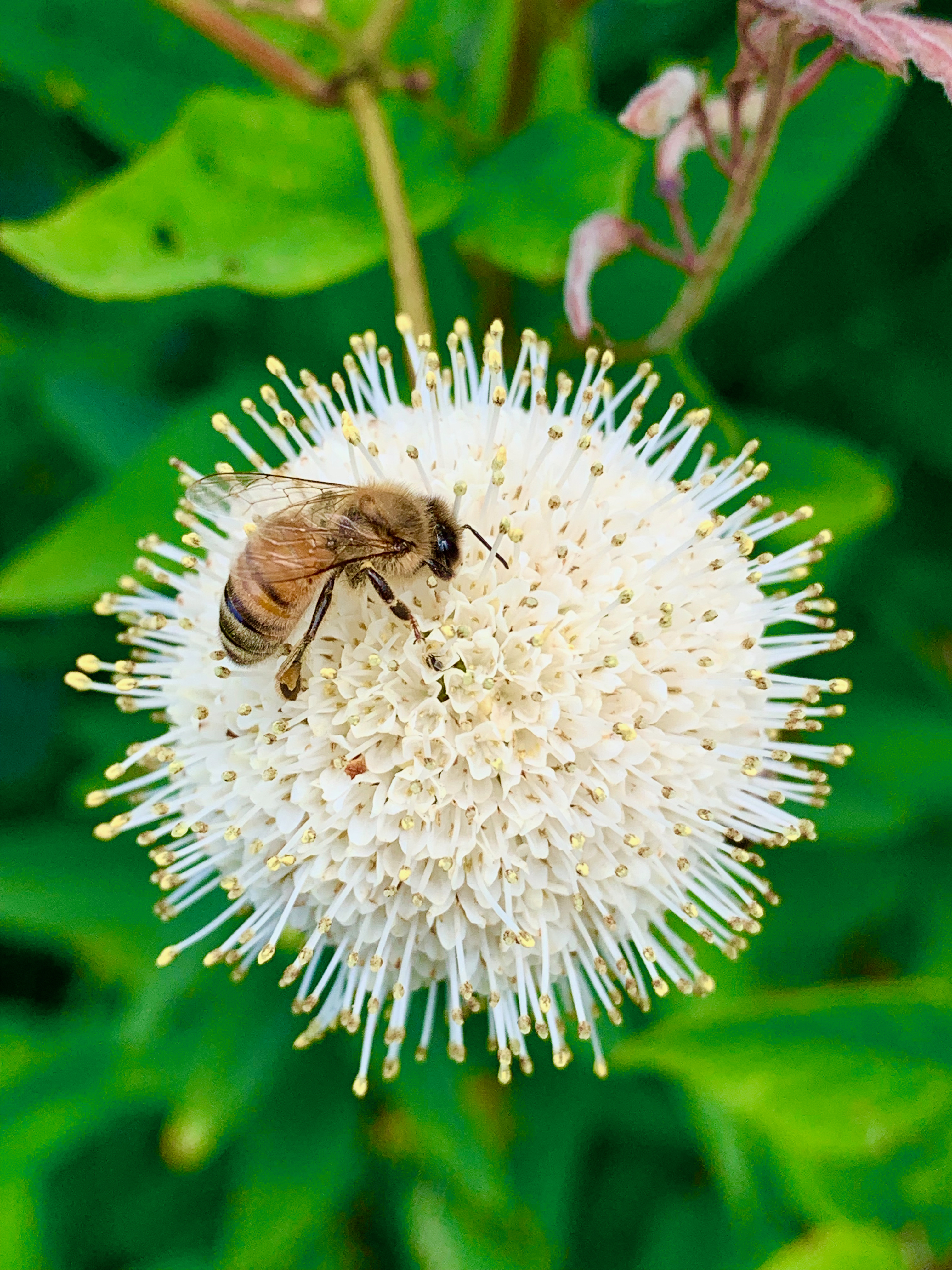Against Idleness and Mischief
How doth the little busy bee
Improve each shining hour,
And gather honey all the day
From every opening flower!
How skilfully she builds her cell!
How neat she spreads the wax!
And labours hard to store it well
With the sweet food she makes.
In works of labour or of skill
I would be busy too:
For Satan finds some mischief still
For idle hands to do.
In books, or work, or healthful play
Let my first years be past,
That I may give for every day
Some good account at last.
Isaac Watts 1715

Figure 1 – Honey bee in a common button flower, Great Meadow National Wildlife Refuge, August 2, 2021. (c) DE Wolf 2021.
Figure 1 is a follow up on our discussion yesterday about Lewis Carroll and Tiger lilies. In 1715 Isaac Watts wrote the moralistic, as in “idle hands are the Devil’s workshop,” poem entitled “Against Idleness and Mischief.” Lewis Carroll’s poem from Alice in Wonderland, “How doth the little crocodile,” is, in fact, a parody on Isaac Watts’ poem.
And hence we have today’s image from The Great Meadow National Wildlife Refuge in Concord, MA of a honey bee in a common button flower. It seems strange to me that as a child we were taught to fear the honey bee’s sting as if their role on this Earth was to attack us – again no longer PC and much like poor, now defamed, Tiger Lily. The bees are glorious and what they produce is very much the ambrosia of the gods. It is as Pooh said, “The only reason for being a bee is to make honey. And the only reason for making honey is so I can eat it.”
How doth the little crocodile
Improve his shining tail
And pour the waters of the Nile
On every golden scale!
How cheerfully he seems to grin
How neatly spreads his claws,
And welcomes little fishes in
With gently smiling jaws!
Lewis Carroll, Alice’s Adventures in Wonderland, 1865.
